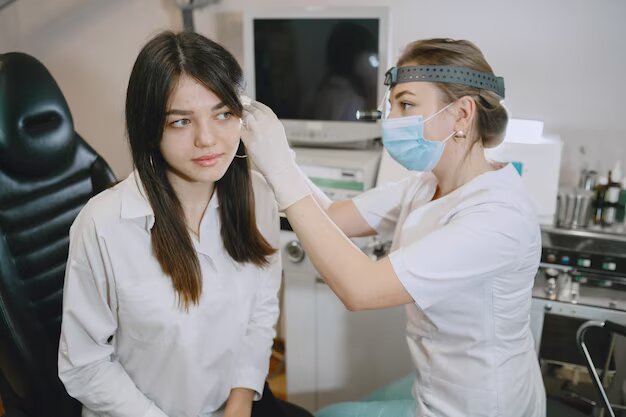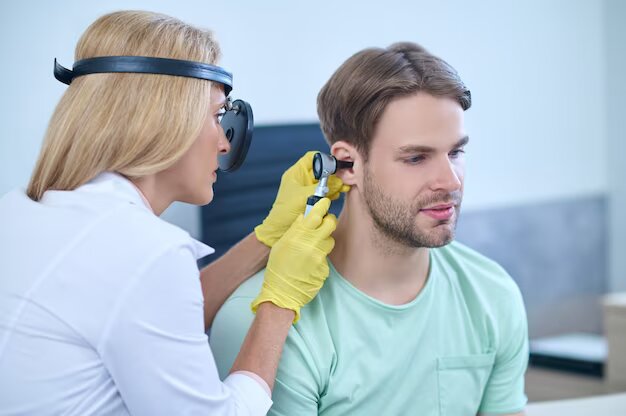Coping With Hearing Loss: Preventative Measures, Early Detection, And The Importance Of Regular Hearing Evaluations
Hearing loss affects millions of people worldwide and can significantly impact communication, social interactions, and overall quality of life. In fact, more and more people nowadays are starting to wear hearing aids or looking for several reviews online such as Jabra Enhance, Audien, or MD Hearing aid reviews before deciding on which specific brand to purchase.
However, with proper preventative measures, early detection, and regular hearing evaluations, individuals can better manage and cope with hearing loss. This article will discuss the importance of these strategies and their role in maintaining good hearing health.
Preventative Measures

Preventing hearing loss is essential, as it is often irreversible once it occurs. By taking the following preventative measures, you can reduce your risk of developing hearing loss and protect your hearing health:
- Limit exposure to loud noise: Prolonged exposure to loud noise is one of the leading causes of noise-induced presbycusis. Be mindful of your surroundings and limit your exposure to loud environments, such as concerts or noisy workplaces.
- Use hearing protection: When you cannot avoid loud environments, use hearing protection, such as earplugs or earmuffs, to reduce the intensity of sound reaching your ears.
- Maintain a healthy lifestyle: A balanced diet, regular exercise, and maintaining a healthy weight can positively impact your hearing health. Smoking, obesity, and certain medical conditions, such as diabetes, can increase the risk of hearing loss.
- Manage medications: Some medications, known as ototoxic drugs, can cause hearing damage. Always consult with your healthcare provider about the potential side effects of medications you are taking and whether alternative options are available.
Early Detection
Detecting hearing loss early can improve treatment outcomes and minimize the negative effects on communication and quality of life. To ensure early detection of presbycusis, consider the following:
- Monitor changes in hearing: Be aware of any changes in your hearing, such as difficulty understanding speech, frequently asking others to repeat themselves, or turning up the volume on your devices. These could be early signs of hearing loss.
- Seek professional help: If you suspect you may have presbycusis, consult with an audiologist or hearing specialist for a comprehensive hearing evaluation.
- Educate yourself: Understanding the causes, signs, and symptoms of hearing loss can help you identify potential issues early and seek appropriate help.
Read Also: 6 Signs You Need Professional Ear Cleaning
The Importance Of Regular Hearing Evaluations

Regular hearing evaluations play a critical role in maintaining good hearing health, detecting presbycusis, and ensuring appropriate treatment. Here are some reasons why regular hearing evaluations are essential:
- Early intervention: Regular hearing evaluations can detect hearing loss in its early stages, allowing for prompt intervention with hearing aids or other assistive devices. Early intervention can significantly improve communication and quality of life for individuals with presbycusis.
- Accurate prescription: Hearing evaluations provide a precise prescription for hearing aids, ensuring optimal performance and comfort.
- Monitor progression: Regular evaluations allow your hearing professional to monitor any changes in your hearing and adjust your hearing aids or treatment plan accordingly.
- Comprehensive assessment: A hearing evaluation assesses not only your hearing sensitivity but also your ability to understand speech in quiet and noisy environments, providing a thorough understanding of your hearing health.
Coping with hearing loss involves taking preventative measures, seeking early detection, and prioritizing regular hearing evaluations. By adopting these strategies, individuals can better manage their hearing loss and maintain optimal hearing health.
Preventing hearing loss by limiting exposure to loud noise, using hearing protection, and maintaining a healthy lifestyle can significantly reduce your risk of developing hearing issues. Early detection, through monitoring changes in your hearing and seeking professional help, can improve treatment outcomes and minimize the impact of presbycusis on your daily life.
Finally, regular hearing evaluations are crucial to ensuring early intervention, accurate prescription for hearing aids, and monitoring the progression of hearing loss. By working closely with a hearing professional and prioritizing your hearing health, you can better cope with hearing loss and enjoy a higher quality of life.
Additionals:
- Juvenon Reviews, Ingredients, Benefits, Side Effects, Cost & Is It Safe?
- Marie Antoinette Syndrome: Causes & Treatments
- The 8 Best Vitamins And Supplements For Men



